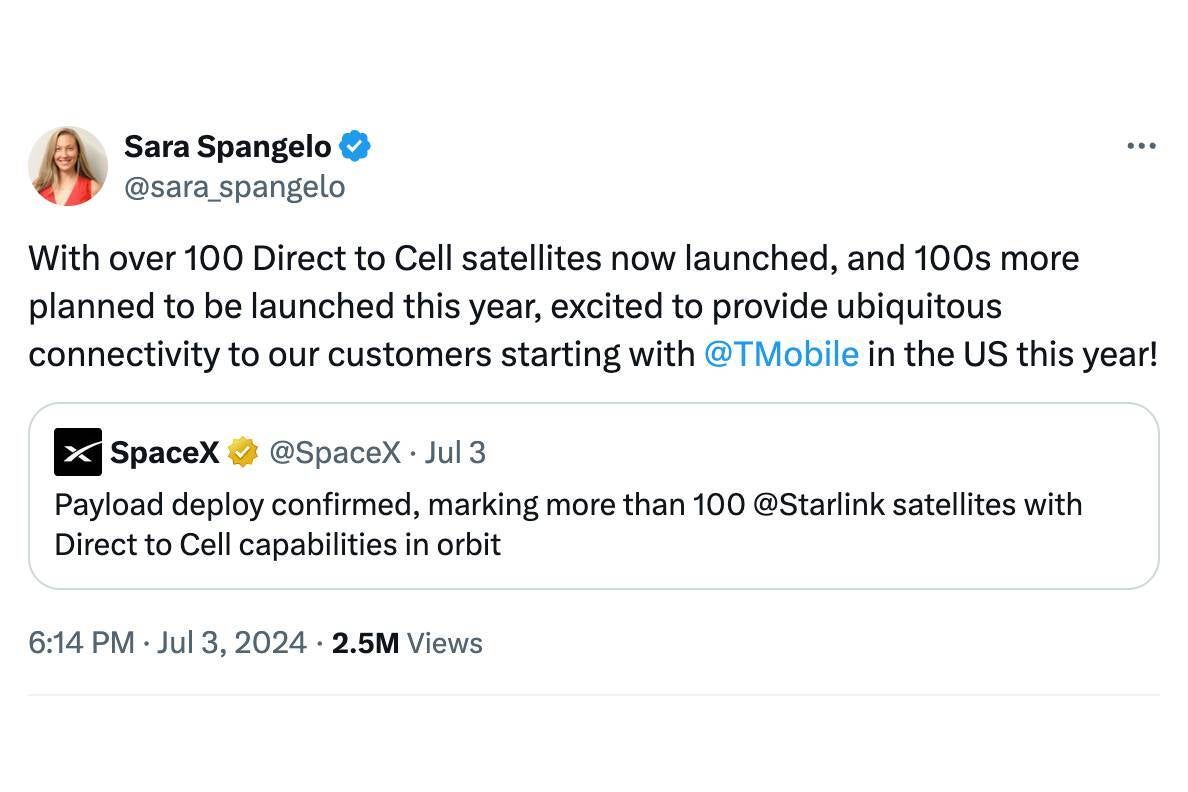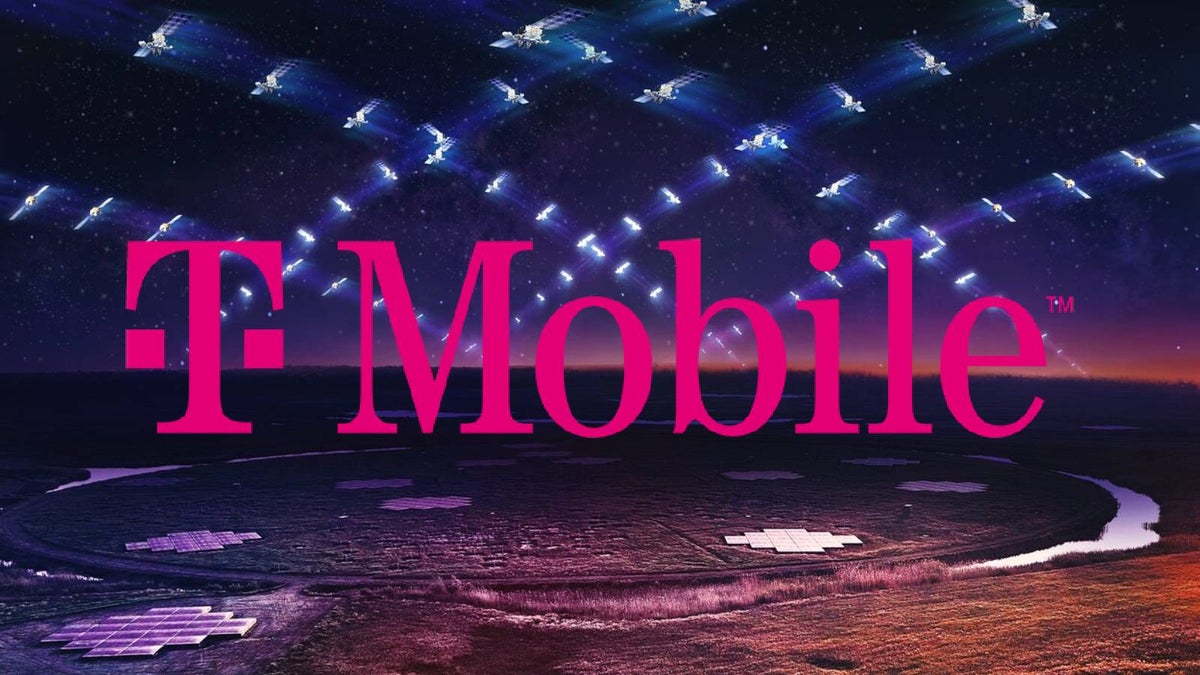It was announced in 2022 that SpaceX would use its Starlink satellites and T-Mobile’s network to provide connectivity in areas where signals are weak or non-existent. The satellites will function like cell towers in space. In January, the two sent the first text message via satellites.
There have been multiple signs in recent months that the Direct to Cell service is ready for a commercial rollout. For instance, the second Android 15 beta brought the satellite messaging option to many T-Mobile customers, though it doesn’t work right now. A May FCC filing revealed that Direct to Cell would be coming to the US in the fall.
The two are on track to meet the timeframe. SpaceX has revealed that it has released more than a hundred Starlink satellites with Direct to Cell capabilities into orbit. The company’s senior director, Sara Spangelo, expanded on that by saying that the company will launch hundreds more satellites this year. These deployments will help the company bring ubiquitous connectivity to T-Mobile customers this year.

SpaceX is working hard to bring satellite connectivity to T-Mobile customers later this year
That’s an important development, considering the company only had 13 Direct to Cell satellites in space at the end of May. Telecom, Media and Finance Associates’ President Tim Farrar believes the company will need around 300 phone-connecting satellites to launch the service.
SpaceX and T-Mobile are going to have about an 18 to 24-month lead in bringing direct satellite-to-cell phone capabilities to consumers over other companies such as partners AST SpaceMobile and AT&T, and Verizon.
T-Mobile might provide the service for free initially, at least to those on pricey plans. At first, customers will only be able to send text messages using the service, but unlike the iPhone’s satellite connectivity feature, it won’t be restricted to contacting emergency services only. Voice and data services will likely be rolled out in 2025.
The service is expected to work with all LTE-capable phones, meaning no specialized tools will be needed. It probably won’t work indoors though and you’ll need a clear view of the sky for coverage.
